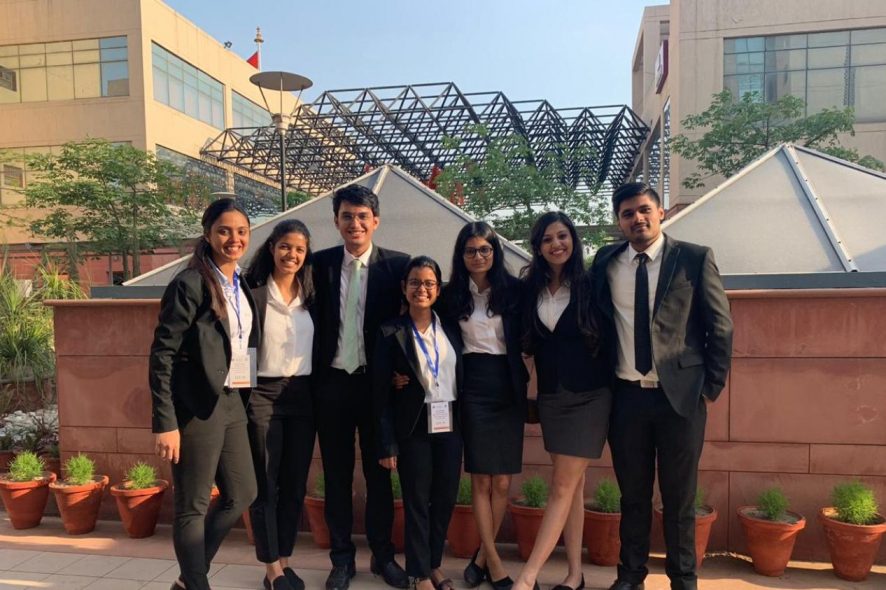- Can you tell us about the moot?
The ICC Moot Court Competition simulates the proceedings of the International Criminal Court. Teams have to first participate in the regional rounds to qualify to the world rounds held in The Hague, Netherlands. This moot, unlike most other moots, has 3 speakers representing 3 different sides, namely, Defence, Prosecution and Government/Victim.
- Can you tell us what was the subject matter of the moot? What were the difficulties you faced during the entire journey?
The subject matter of the moot is international criminal law. One of the difficulties we faced was access to resource materials on the subject matter.
- Why did you plan to pick this moot over others in university?
I chose this moot because the subject matter intrigued me.
- How long did it take to make the memo? Any key things to suggest to our readers to make memo better?
It took about a month to research and approximately another month to make the memo. To make a memo better, people should ensure that the language used is crisp, brief and simple. One should try to avoid long sentences (above 20-25 words) and try not to use complicated language.
- How was your coordination with your university team? Did you take help from your friends/seniors as well?
Our team worked well together. There were obviously times when we disagreed but that, in my opinion, is common with any team, especially in a competition with such high pressure and high stakes. The team who had done ICC in the year immediately preceding ours helped us a lot. We would not have been able to perform as well as we did without their constant support and guidance.
- Can you tell me about first stage of oral rounds? Can you tell do’s and do nots for our readers?
Unlike the world rounds, where each speaker has two preliminary rounds, in the first stage of oral rounds, there is only one preliminary round for each speaker. This makes the first stage of oral rounds more difficult because in my experience, every speaker improves with each round. In fact, even in our oral rounds, our quarterfinals speech was significantly better than our speeches in the preliminary rounds. Thus, people should do adequate number of speaking practices to ensure that they can ace the preliminary rounds.
Some do’s and do nots include:
- Speakers must have basic knowledge about the ICC because judges tend to ask general questions about ICC proceedings which are unrelated to the main issue. Speakers should be thorough with the Rome Statute.
- National round judges generally are not well versed with international criminal law, so teams should ensure that they make their speeches as simple and as logical as possible.
- However, there are always judges who have done ICC moot before or have knowledge about ICC and therefore, teams must ensure that they know the authorities they are relying on well.
- Which one was your favourite round? How were the judges?
My favourite round was the quarter finals where I think we gave our best performance. The speaker in that round was HarshLahiri. Judges were very good and had basic knowledge about ICC. That always makes a round more interesting.
- Any tip for readers wrt speaking rounds as you won best speaker citation.
In my experience, style and matter are both equally important. Speakers at national rounds are generally stylistically very good because we are from an English-speaking country as opposed to teams in international rounds, where several speakers will not be as fluent in English since English is their second language. So, to stand out, teams must focus on matter as well which essentially means that teams must put in as much effort into research and ensure that their speech highlights the effort put into research.
Stylistically, a speaker must sound confident and ensure that they portray their role well. In ICC, speaker roles are extremely important, and hence, people should research on their speaker roles and watch videos of actual ICC proceedings to ensure that they do justice to the role they are representing. Each role is stylistically different and therefore, this is a very important factor that needs to be taken into consideration by teams when assigning roles to different speakers.







Keep it up